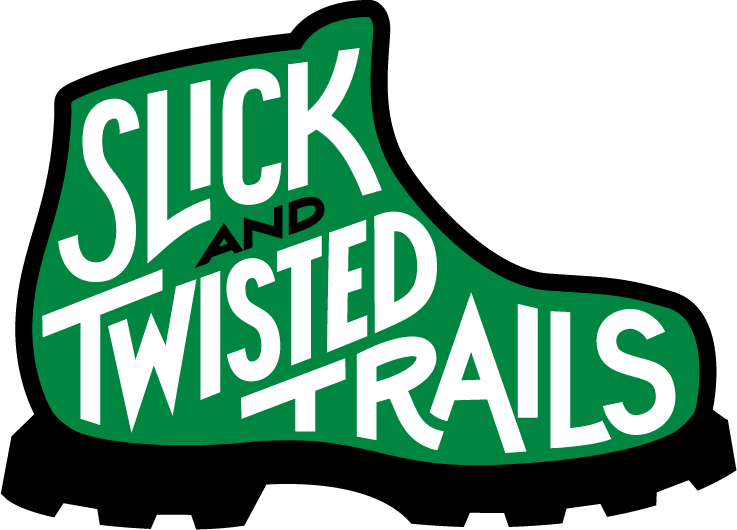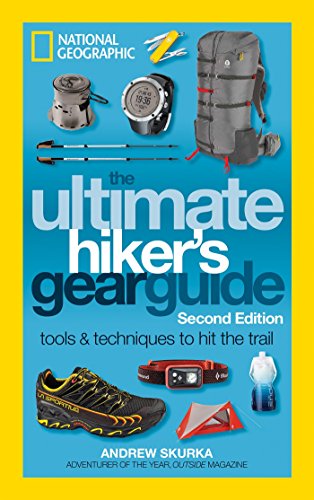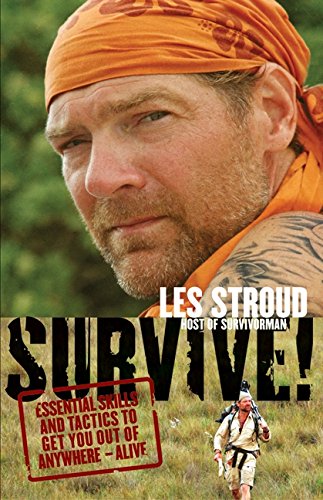
It’s been long enough ago that I really can’t remember exactly how I started learning to backpack. I mean, where does one learn the skills to stay out for multiple days, live through soaking rain, and make a campsite? It’s a long process and there are a lot of skills that must all be built upon.
Like learning any new skill in the age of technology, there are many ways to inform yourself. However, backpacking and hiking aren’t purely cerebral activities; they’re physical, too! In this article, we’ll cover all the ways you can get educated on your backpacking skills.
More...
Instead of just making a list, I’m also going to use my years of experience as a backpacking guide to help you decide which method is right for you (and when).
By the end of this article, you’ll know exactly where to look for the best information on backpacking and hiking!
Types of Backpacking Courses
Physical Courses
Arguably the best and most immersive way to learn backpacking is to get out there and do it, right?
Problem is, if you don’t know what you’re doing, you could get lost, hurt, or worse! So, what’s to be done?
Physical in-person courses are a time-test way to learn anything. Backpacking, in particular, is conducive to experiential learning.
Unfortunately, physical courses also come with major drawbacks such as travel, cost, and more.
Pros
Cons
Despite their heavy financial costs, in-person courses remain my top pick for the most holistic method of learning backpacking and hiking.
Physical courses when supplemented with structured book learning can be perhaps the most comprehensive instruction on the topic. Unfortunately, many books and physical courses do still lag a bit behind the bleeding edge of technique, gear, and skills though.
Online Courses
Possibly the best bang for your buck, online courses bring the static style of book learning to mesh with in-person courses. They’re great because online courses can cater to many varied learning styles. On top of that, most online courses also feature live interaction or Q&A with an expert.
Among the drawbacks of an online course is the fact that you’re simply just not out there doing it. To get the most out of an online course, make sure to get out in your backyard (or on the trail) and practice as you learn!
Pros
Cons
Use your best judgment when choosing an online course. Costs can vary wildly and what you get for your money can be hard to determine before you actually pay.
Some courses offer a preview of the course or will consider refunding your money if you’re dissatisfied after a certain period of time.
Book Learning
While it’s a little “antiquated” compared to some of the options on our list, reading a book or two never hurts, right?
Backpacking, hiking, and survival books can, much like online courses, vary wildly in quality and scope both.
One major thing to watch out for these days are cheap, ghostwritten or scraped eBooks on sites like Amazon. These sites are getting taken over by poorly written and poorly researched eBooks based on common, outdated, or often just incorrect information.
Authors like Mike Clelland, Andrew Skurka, and all of the NOLS books are information and instructive (and can be trusted). In fact, I always recommend the Hiker’s Gear Guide (updated edition) by Andrew Skurka to all backpackers looking to deepen their knowledge!
Pros
Cons
YouTube & Blogs
Let’s face it, today you can learn as much or more from YouTube, blogs, and forums as you can just about anywhere else. Unless you’ve got a bonafide expert on hand to teach you, doing your own research can often dredge up some of the deepest information.
Unfortunately, however, sites like YouTube are littered with poor quality videos that you have to sit through minutes of opinion or misinformation in order to find the one nugget of gold.
Similarly, forums are littered with garbage information and threads demolished by heated opinion battles. Don’t be fooled, however, there is a deep pool of information to draw from if you’re willing to spend days sifting through dusty posts.
Pros
Cons
Unfortunately, because there are so many voices on the internet, the sheer amount of differing opinions can lead to decision paralysis. A few minutes of research turns into days of sorting through other people’s opinions and you end up no closer to making a final decision – it happens all the time.
Despite the heavy drawbacks, YouTube and online forums can often be sources of some of the latest trends, techniques, and information. Few things evolve faster than internet opinions.
Backpacking & Hiking Courses for 2019 and Beyond
National Outdoor Leadership School – Physical Courses
Perhaps the most recognizable name in outdoor hard-skills training is NOLS. They’re an international organization that teaches everything from backpacking, sea kayaking, mountaineering and more!
What’s insane is that their courses range from 3-days to 3-months of hands-on in the field intensive training.
In fact, I went to school in partnership with NOLS near their headquarters in Lander WY. Their programs are, perhaps, the best in the industry and they most certainly paved the way for Outdoor Education to be where it is today.
NOLS’s sister organization, the Wilderness Medicine Institute, offers a huge lineup of wilderness medical training as well.
Use the NOLS Course Finder to locate a course with the skills you want to learn and you can be out there getting it done!
Stone Hearth Open Learning Opportunities – Physical Courses
SOLO is often regarded as the East Coast equivalent of NOLS. Their courses, however, tend to be perhaps slightly more focused on the soft skills (person to person interactions) whereas NOLS courses tend to focus on hard skills (gear and techniques).
SOLO operates many of their own courses and SOLO trained instructors further operate many courses through other outdoor institutions. You’re likely to find them just about anywhere on the eastern side of the United States.
Solo, like NOLS, also offers a wide helping of wilderness medicine courses.
Check out the SOLO Core Courses here!
Jackson Hole Outdoor Leadership Institute – Physical Courses
If you’re looking for winter courses, the JHOLI courses are some of the best!
I’ve known Jacob, the President of JHOLI, for a few years and took a course from him myself several years back.
This is a great place to get AIARE Avalanche certified and they also teach a ton of great wilderness medicine coursework!
If you’re an avid skier or backcountry enthusiast, you’ll be hardpressed to find someone more passionate or knowledgeable than JHOLI.
Hiking for Her – Online Courses
These online backpacking courses are put on by Diane Spicer. She’s a Michigan native (like me). Her background is in classroom education and she fell in love with hiking.
Today she offers courses and information mostly aimed at helping ladies learn to love the outdoors. Needless to say, she’s much more of an expert in this area than myself and women’s specific backpacking information, while growing, is still limited.
You’ll definitely want to take a look at what she’s got going on and go support her, particularly if you’re a woman seeking specific information to improve your backpacking.
Hike With Less – Online Courses
Of course, we have to plug our own in-house backpacking course pioneering by yours truly and Dustin Walker of Slick and Twisted Trails.
Together we launched this backpacking course in 2018 so it’s fresh, updated, and loaded with all the tips I had to learn the hard way. If you’re still wondering, my background is in leading wilderness trips. I have a degree in Outdoor Education and I’ve spent over a month in the mountains with NOLS and JHOLI.
On top of all my professional knowledge, I’ll pass on my own tips and tricks as well as a heavy dose of how to lighten that backpack. This course focuses heavily on ultralight and lightweight backpacking and we’ll show you how to determine just how light is right for you!
I also personally respond to questions and inquiries inside the courses!
Survivorman – Digital Media
One of my earliest influences and educations on backpacking skills was Les Stroud’s Survivorman. Unlike many TV shows, Les avoids dramatizing and he’s always accurate with his information.
While I would shudder to recommend other outdoor TV shows as “informational” I think the Survivorman series is both educational and helpful to hikers and backpackers.
By watching a little Survivorman you can relax at night and enjoy both entertainments as well as low-key education that could someday help get you out of a bad situation in the wilderness. I mean, if you’re going to sit down and watch a show, it might as well be useful, right?
While I did mention this earlier, I wanted to give it its own section to make sure this book doesn’t get missed.
Andrew Skurka was a major early influence for me in ultralight backpacking. His name is right up there with many of the legends of ultra-hiking. While his approach may be overzealous for most of us, his information and research are usually right on point.
In this book, Andrew breaks down things like how waterproof fabrics work, exactly how to choose lightweight hiking boots, and he debates niche details about outdoor gear. For those who are uninterested in the technical side of outdoor gear, it may be tedious or even pretentious. But for the gearheads among us, it will scratch an itch!
Survive! – Book
Survive! by Les Stroud (the host of Survivorman) is really a fantastic read.
While my biggest criticism is that some of the information may be available in other survival books, Les puts his own spin on things.
He avoids regurgitating much of what has already been said by instead sharing his own insights. He’s survived and backpacked more night in more locations than most of us will ever spend on the trail. In doing so, he’s also learned a thing or two.
One of the skills I refined from this book was my fire starting skills. Don’t expect to be a master at starting survival fires after just one read, but with practice and outside knowledge this book puts the polish on skills you already have.
Andrew Skurka – Guided Trips & Blog
Skurka has been mentioned before and I’ll mention him again just because of his attention to detail when it comes to lightweight hiking knowledge.
While his approach and tactics are guaranteed to be much too extreme for some (he hikes 30+ miles per day and carries almost no weight), his technical knowledge is great!
Skurka’s blog is filled with a mix of self-promotion, personal trip stories, and scattered details of cutting edge lightweight backpacking techniques.
If you think you can keep up, he also offers in-person trips with other famous lightweight backpacking celebs. Watch out though, they’ll cost you!
Conclusion
There’s no way I could possibly cover all the blogs, forums, books, shows, and backpacking courses available around the world. Instead, I’ve focused on sharing sources I know are credible, helpful, and well put together.
After spending several years guiding backpacking trips and running wilderness expeditions programs, I’ve learned a few things. Not everyone wants to hike fast, or light, or carry the latest gear. Some of us take thing slow, prefer lots of thorough research, or have a more casual and laidback attitude about backpacking.
Afterall, we’re supposed to be having fun out there, right?
While backpacking becomes a study of intellect for some, for others it’s purely instinctual and personal. Go your own way and have fun, but please stay safe out there!
All of the information and courses on our list are what I would consider to be trustworthy, reliable sources of good information.










